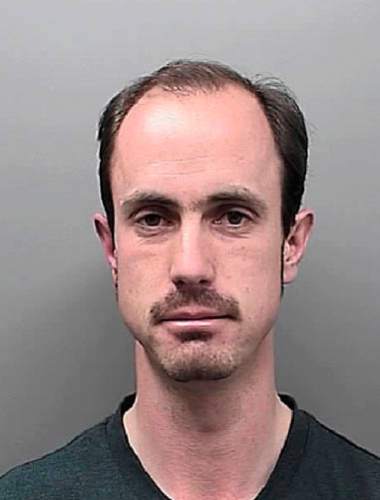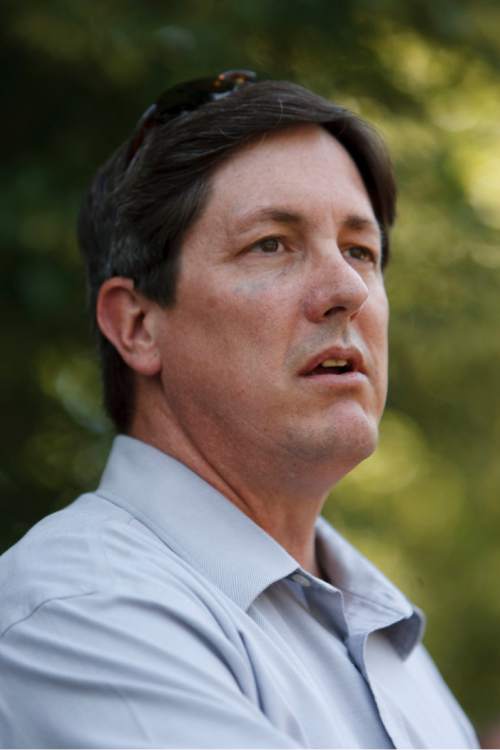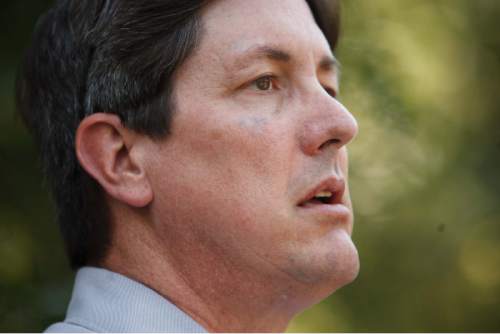This is an archived article that was published on sltrib.com in 2016, and information in the article may be outdated. It is provided only for personal research purposes and may not be reprinted.
Polygamous sect leader Lyle Jeffs has been let out of jail pending trial on accusations he helped orchestrate a multimillion-dollar food stamp fraud scheme, but he'll be relegated to home confinement in Salt Lake City more than 300 miles from his community on the Utah-Arizona border.
U.S. District Judge Ted Stewart granted Jeffs' latest request to be released on Thursday after a hearing in Salt Lake City attended by nearly 30 sect members. Stewart cited the fact that the other 10 defendants already released have complied with conditions set by the court.
Stewart also acknowledged that Jeffs' jail time would be longer than expected with the trial being pushed back to October. Jeffs' attorney, Kathryn Nester, said his constitutional rights would have been violated if he were jailed until trial.
Jeffs was ordered to wear a GPS monitor and stay in a Salt Lake County house, except for a few reasons such as work, doctor's appointments and court hearings. He is prohibited from talking with witnesses, co-defendants and his brother, imprisoned sect leader Warren Jeffs.
Nester asked that her client be allowed to speak with his immediate family, but Stewart denied the request after he decided it was too difficult to determine who would fit in that category. It's not known how many wives and children Lyle Jeffs has, but top-ranking leaders commonly have more than a half-dozen wives and dozens of children.
Members of the sect, known as the Fundamentalist Church of Jesus Christ of Latter-Day Saints, believe polygamy brings exaltation in heaven. The group is a radical offshoot of mainstream Mormonism, which disavowed polygamy more than 100 years ago.
Federal prosecutors argued that Lyle Jeffs should remain behind bars because witnesses will be scared to cooperate with government investigators out of fear that he will send them away on repentance missions or order other punishment. Prosecutor Tyler Murray said Jeffs already talks to dozens of people daily from jail about every aspect of their lives, including work and where they live.
"If he can wield that power in detention, the threat is much greater when he is out," Murray said.
Stewart, who had previously sided with prosecutors in denying Jeffs' request to be let out, said he doesn't think Jeffs will have any more influence from his house in Salt Lake County than he does in jail.
Lyle Jeffs was the only defendant still behind bars among 11 people indicted and arrested in February on charges of diverting at least $12 million worth of federal benefits.
Prosecutors say sect leaders instructed followers to buy items with their food stamp cards and give them to a church warehouse where leaders decided how to distribute the products to followers.
They say food stamps were also cashed at sect-owned stores without the users getting anything in return. The money was then diverted to front companies and used to pay thousands for a tractor, truck and other items, prosecutors say.
All the defendants have pleaded not guilty to fraud and money laundering charges.
Sect members stood shoulder to shoulder against a courthouse hallway wall Thursday as they waited to get in. On one end, men wore jeans and dark blue or green button up shirts. The women, on the other end, wore dark versions of their typical prairie dresses, their hair neatly coiffed in updos.
Jeffs smiled at his followers as he exited court, wearing a button down shirt and vest rather than jail jumpsuit he's worn at previous hearings.







